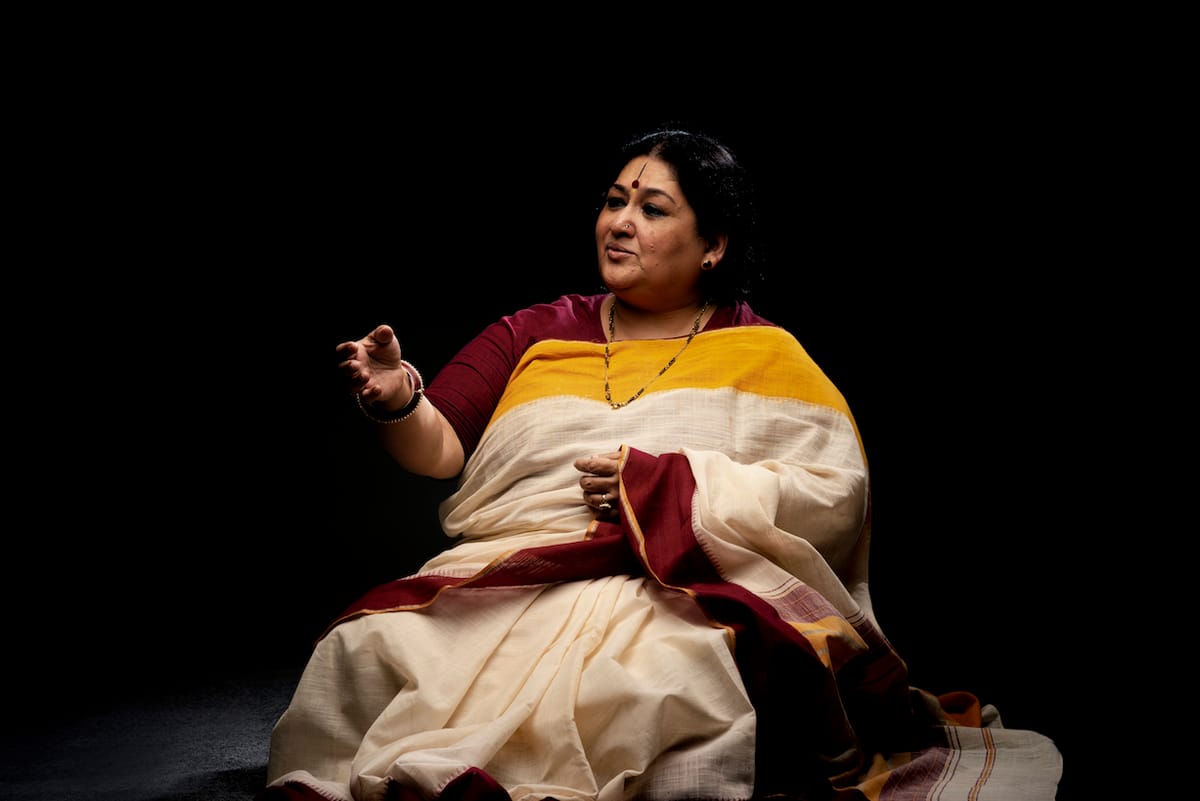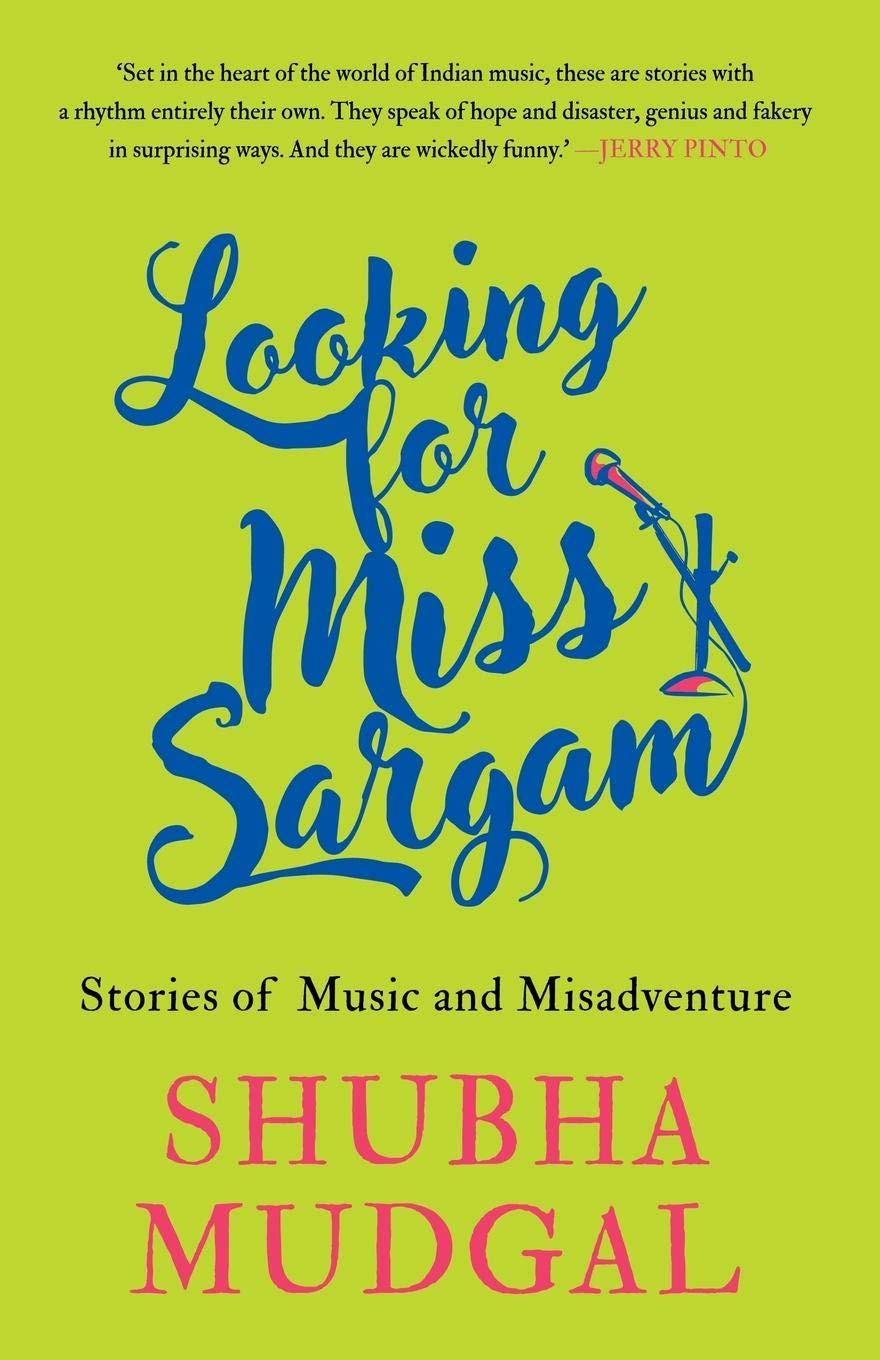Looking for Miss Sargam: In conversation with Shubha Mudgal

Shubha Mudgal has specialised in the Hindustani classical genres of khayal and thumi-dadra. She is the recipient of several national and international awards. With deep roots in the diverse world of Indian music, Mudgal has been a student, performer, teacher, composer and columnist for several decades. Her debut collection of short stories revolves around the music that has nurtured and helped find her voice.

Serenade Team: “You know Shubha Mudgal has single handedly popularised vocal Indian classical music to the masses. Of course Zakir in the tabla is a class apart. Listen, I’m not even in this field, and am giving you names because they have affected my growth.” That was Dr Pheroza Godrej who in an interview with Serenade said this about you. How do you navigate through the day to day pressures and expectations from people all around you?
Shubha Mudgal: The only expectation that people have of me is that when I am on stage, I would present a halfway decent concert, and for that it is not really anything that I have to go out of my way to do. It is not under my control whether the concert will be good or not. The companionship of music and to be able to study music from some of the finest people is what my life is about really. I’m either listening to music, teaching, practicing, or studying music myself. So it is pretty much music that steers and leads my life. In a sense I don’t have to do too much. I just have to change the location from my home where I practice to being on stage.
I’d also like to say that Pheroza ji made a very generous statement about me and I am deeply grateful to her. I would like to point out that women like me are not from families of musicians. Many many people really worked tirelessly to make this opportunity available to women like me who did not come from families of musicians. The real credit goes to all those people who set up schools, democratised the teaching and learning of music and to many amateur women who came from families of non-musicians but whose study of music was so deep – they never performed professionally but they made the way easier for women like me.
ST: Why is it important for young individuals to engage with classical music more so today than ever before?
SM: I don’t think it is necessary for young people to engage with music. I think an engagement with the arts is very important. There are enough studies to prove that people who have had ample exposure to the arts are sensitised in various ways. In the violent and barbaric times that we are living in, perhaps an introduction to music and a sustained engagement with music at any level is something that we need desperately.
ST: Our National Capital does not have a state-of-the-art concert hall. Why do you think this is so? How can you appeal towards this cause?
SM: Our appeal will only remind people of this big chasm in the capital. Even when people listen to us, they rarely approach the subject. This is across not just in Delhi but various parts of the country. When a new auditorium is built nobody bothers talking to stakeholders or performers. For example, even in the most plush of auditoriums in our country, the basic requirements for Indian musicians will not be taken into consideration. Spaces that are created in India are certainly at par with what is available around the world however they are not made for Indian music. There needs to be a dialogue.
ST: You were a curator for the Serendipity Arts Festival in 2016 and 2017. How is this festival raising the general awareness towards the performing arts in India?
SM: I particularly enjoyed my role as a curator partly because it was an unfamiliar territory for me. I could test whether a concept will work or not. It doesn’t take too much effort to put great artists in a sequence or bringing them together. When you test the means of a presentation, will an idea work? Everybody talks about learning from the past. One of the projects that I had done in the first year was called Living Traditions. We took 78rpm recordings of Hindustani classical music which were some of the first recordings and asked current musicians to present those, thereby making a continuum and showing how musicians of the yesteryears had adapted to new emerging formats. I think when you have an idea and you want to test it, for me it was a challenge that I really enjoyed and learnt a lot from, including how to work with a team which I had never done before.
ST: What do you like listening to when you are not making music? Do you listen to other genres of music?
SM: I am very blessed to have lots of friends who share their collections or send me links. For example, the Portuguese Fado – the amazing passion and poignance in it… how you can use the voice to create that and in an entirely different way to how I was trained.





